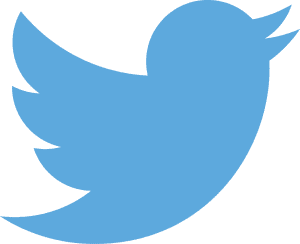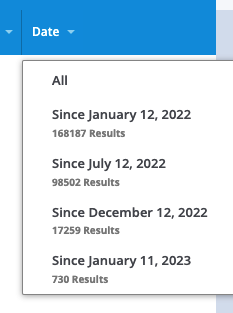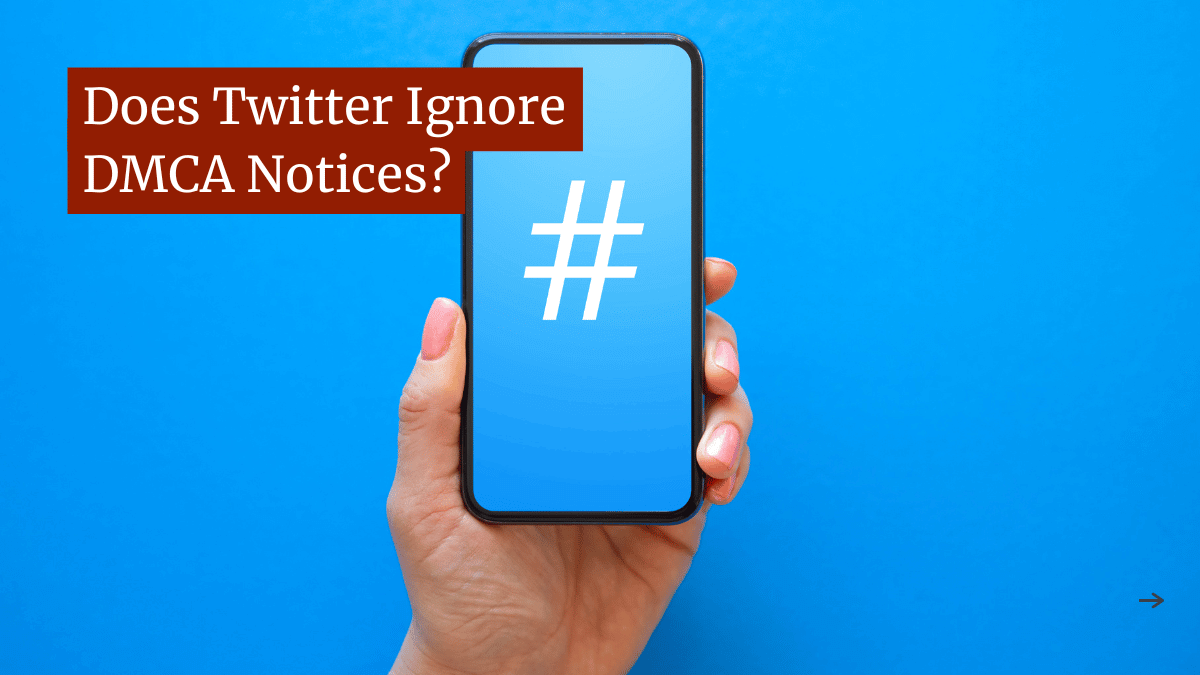Does Twitter Ignore DMCA Notices?

Last week, Twitter was hit with a $228.9 million lawsuit filed by the celebrity photo agency Backgrid.
According to the complaint, the company sent over 6,700 Digital Millennium Copyright Act (DMCA) notices between September 2021 and December 2022, only to have none of them acted upon and none of the repeat infringers involved have had their accounts terminated.
Though the lawsuit doesn’t list every image at issue, it focuses on samples from two separate accounts. In one of the accounts, the image appears to have been removed, though it does not say they were removed due to a copyright complaint. In the other, the images are still online.
Neither account has been suspended as of this writing.
This paints a very bad picture of Twitter. While it would be easy to blame the issue on the recent chaos at the site, similar to when its copyright filters went offline, according to Backgrid, the vast majority of these notices were filed before Elon Musk took over as CEO.
So, does Twitter ignore DMCA notices? Both the complaint and Twitter’s own data leave some questions unanswered.
Missing Details, Missing Data
The complaint filed by Backgrid makes a very strong case that Twitter has been derelict in their duties when it comes to the DMCA. Under the law, Twitter is supposed to both “expeditiously” remove allegedly infringing content when notified and, in cases where a user is classified as a repeat infringer, suspend or otherwise disable their access to the service.
While the law leaves a great deal open to interpretation, given that many of these DMCA notices are over one year old and the accounts involved have dozens of different complaints, it would seem neither are being followed. The complaint also cites an “industry standard” three-strikes policy, which they allege was not followed here.
However, the complaint doesn’t say how the DMCA notices were sent or what those notices looked like. Twitter’s copyright policy pushes users to a form. However, in cases such as this with a large volume of DMCA notices, email is much more common.
To that end, Twitter does provide an email address as part of its required registration with the US Copyright Office, but it is unclear whether that email is monitored or notices sent to it are acted upon.
However, we don’t have to guess how Twitter handles DMCA notices, or at least we shouldn’t.
Twitter provides an extensive transparency report that includes information about copyright notices. Unfortunately, that report is both out of date and not functioning.
The latest update reveals that they received 146,906 takedown notices in the span between July and December 2021. However, it’s impossible to directly see more details beyond that as the report no longer works and is also overdue for reporting on the first half of 2022.

Though loading cached copies did not work either, the Lumen Database does give us some data. Twitter, like several other tech companies, forwards information on DMCA takedowns to Lumen where they become searchable after personal information is stripped out.

According to Lumen, there have been 168,187 notices filed with Twitter since January 12, 2022. Their information is limited, but all the ones I checked were marked as having action taken. However, it is unclear how Twitter reports this data and there is no way to verify that the works were removed.
Unfortunately, asking Twitter directly isn’t an option as, according to reports, Twitter no longer has a public relations department and there has been no comment from Twitter.
As such, I have to look at anecdotal data, including my own. I will say that, of the DMCA notices I’ve filed with Twitter over the past two years, all were removed. However, all these cases were also non-consensual pornography cases filed using their form. Because of that, they may not be relevant to this lawsuit.
Bottom Line
In the end, the best evidence suggests that Twitter did respond and act on the majority of copyright notices it received, especially during the time period covered by the lawsuit.
So, this raises the question of why these notices were ignored. According to Backgrid, they received no communication at all from Twitter at all, even when they approached Twitter in an attempt to head off the lawsuit.
Most likely, more details will come out as Twitter responds to the lawsuit. It seems unlikely that Backgrid would file incomplete or send them to the incorrect address. Even if they had, one would expect Twitter to at least send an explanation.
It’s pretty clear that something broke down here, and it’s impossible to say what. However, if it was Twitter’s fault, they may find themselves liable for these infringements and could wind up facing an expensive settlement.
The bigger question is whether this is indicative of a larger problem with Twitter or if this was isolated to just Backgrid and these notices. Unfortunately, thanks to Twitter, the evidence we have is limited.
Hopefully, we will learn more as the case progresses.
Want to Reuse or Republish this Content?
If you want to feature this article in your site, classroom or elsewhere, just let us know! We usually grant permission within 24 hours.
